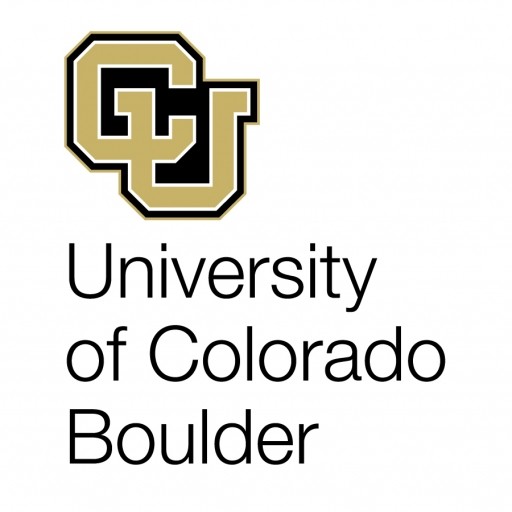Photos of university / #cuboulder
The Astrophysical and Planetary Sciences undergraduate program at the University of Colorado Boulder offers students a comprehensive education in the fields of astronomy, astrophysics, and planetary sciences. This program is designed to provide students with a strong foundation in the fundamental principles of physics and mathematics, coupled with specialized knowledge in understanding the universe and planetary systems. Students have the opportunity to explore a wide range of topics, including stellar and galactic astrophysics, planetary atmospheres and surfaces, cosmology, and space physics. The curriculum combines theoretical coursework, laboratory experiments, and observational projects, preparing graduates for careers in research, industry, or further academic study.
The program leverages Colorado Boulder’s state-of-the-art facilities, including a world-class observatory and research centers dedicated to space science. Students can participate in hands-on research projects, working alongside faculty who are renowned experts in their fields. The department encourages a collaborative learning environment that fosters innovation and critical thinking. Additionally, students are encouraged to gain practical experience through internships, summer research programs, and collaborations with NASA and other space agencies.
Graduates of the Astrophysical and Planetary Sciences program are well-equipped with the skills needed for diverse professional paths such as scientific research, data analysis, aerospace engineering, and education. The program also provides a solid foundation for students planning to pursue graduate studies in astronomy, astrophysics, planetary sciences, or related disciplines. With a combination of rigorous coursework, research opportunities, and access to cutting-edge technology, students are prepared to contribute to advancing our understanding of the universe and exploring the mysteries of planetary systems within our galaxy and beyond.
Prerequisites. A thorough undergraduate preparation in physics and mathematics is necessary for graduate study. Courses should include thermodynamics, mechanics, electricity and magnetism, quantum mechanics, atomic physics and mathematics at least through complex variables and differential equations.
Qualifying Examination. The Graduate Record Examination aptitude tests and advanced test in physics are used in place of a qualifying examination, and this examination should be taken before the time of application to the department.
Preliminary Interview. Students in the Department of Astrophysical and Planetary Sciences are given an oral interview prior to the beginning of the fall semester of their first year. This oral interview examines fundamental knowledge in undergraduate physics and mathematics. Students are required to overcome any academic deficiencies within a year in order to remain in the program.
Course Requirements. Under Plan I, a student must present a thesis for 6 credit hours plus 24 credit hours of course work, at least 12 of which must be APS courses numbered 5000 or above. Under Plan II, additional hours of approved graduate courses must be presented for a total of 30 credit hours, of which at least 16 must be APS courses numbered 5000 or above. The master’s examination under Plan I covers the thesis and related topics. The examination under Plan II is more comprehensive and may be either written or oral or both. Master’s examinations are given after other degree requirements have been completed, but may be given during the last semester of residence if the student is making satisfactory progress on required courses.
Requirements
- Hold a baccalaureate degree from an accredited college or university.
- Have an undergraduate GPA of at least 3.00.
- Submit three letters of recommendation;
- Submit directly from ETS test scores from the verbal, quantitative and analytical writing sections of the General Record Examination (GRE), as well as the Physics GRE.
There is no pre-application, but we strongly urge all applicants to have a strong physics and mathematics background, as well as a strong GPA, and strong GRE scores.GRE minimum scores of verbal 75 percent, quantitative 85 percent, analytical 75 percent. Advanced GRE minimum score approximately 40 percent.
Scholarships
- Financial support is available to all incoming students through teaching or research assistantships. Fellowships are also available upon acceptance.
Astrophysical and Planetary Sciences at the University of Colorado Boulder offers a comprehensive program designed to prepare students for careers in astronomy, astrophysics, planetary science, and related fields. The program provides students with a solid foundation in physics, mathematics, and astronomy, emphasizing both theoretical understanding and practical skills. Students have the opportunity to engage in cutting-edge research projects using state-of-the-art telescopes, laboratory equipment, and computational tools. The curriculum includes courses on celestial mechanics, radiation processes, planetary geology, stellar astrophysics, and cosmology, among others. The program encourages interdisciplinary approaches, allowing students to explore connections between astrophysics, planetary sciences, atmospheric sciences, and astrobiology. Faculty members are renowned researchers actively involved in NASA and NSF-funded projects, offering students unique insights into current scientific challenges and discoveries. The program also supports internships, fieldwork, and conferences to enhance experiential learning and networking within the scientific community. Graduates of the program are well-equipped to pursue careers in academia, private industry, governmental agencies, or to continue their education in graduate or professional schools. The program fosters critical thinking, quantitative analysis, and problem-solving skills, preparing students to contribute meaningfully to our understanding of the universe. With access to the university’s extensive observatory facilities and computational resources, students have practical experience that complements their academic coursework. Overall, the Astrophysical and Planetary Sciences program at CU Boulder is dedicated to fostering innovative research, academic excellence, and preparation for professional success in the dynamic and expanding field of space sciences.









